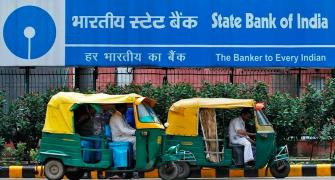
These terms and jargon enables you to pick the right product from an array of products that are offered to you, says Mukesh Kumar, Executive Director, HDFC ERGO General Insurance Company Limited
While life insurance is beyond the purview of this article, let’s look at the other kinds of risks and the insurance products that cover those risks.
Risk to house (structure as well as its contents)
With rising real estate prices a loss to the property may turn out to be extremely costly. Disasters like floods, earthquakes, fires or storms can damage a home to varying degrees. Even the incidences like burglaries can result in loss of one’s valuable belongings. As owners of houses, there is little we can do to avoid any risk incidence. What is required to handle such risks is home insurance cover that not only protects the structure of your property, but also its contents that can ensure a complete peace of mind.
Risk to Motor/Automobiles
Two-wheelers and motor cars are no longer a luxury, but a necessity these days and as the owner of the vehicle, you are exposed to (theoretically) unlimited risk while driving your vehicle. There is a possibility of colliding with another vehicle, a person or ramming into someone’s property causing a loss. In the event of an accident, the damage to your vehicle could be difficult to cover if it is a major one.
A motor insurance helps you to be able to reimburse these losses without stressing your bank balance. You can get a cover against the damage to your own vehicle, as well as damage that occur to the other person’s (third party) health or property through a comprehensive motor insurance.
Risk to health
With growing incidences of health problems, and rising costs of hospitalisation, managing health is not very easy. Very few can escape from the age-related health problems these days. Also, due to the compulsions of the urban lifestyles, the incidence of health problems -- known as lifestyle disorders -- are becoming common even among the not-so-old individuals. What helps in such situation is a health insurance. In fact, with rising costs of healthcare and incidence of lifestyle problems, not having a health insurance could be risky.
A health insurance plan provides compensation for medical expenses to the insured person in case of hospitalisation for more than 24 hours. A standard health insurance covers surgical procedures, nursing care, doctor’s fees, pathology, diagnostic test, hospital accommodation and pre- and post-hospitalisation expenses. Health insurance is an indemnity policy which means that the insured can only claim what s/he has spent and not more. Health insurance can be taken as an individual policy covering only one person or on family floater basis, covering the members of the family.
Risk of critical illness
Amid changing lifestyles, contracting a critical illness like cancer or heart attack at an early age is not uncommon. A critical illness to the breadwinner of the family can be detrimental to a family’s regular life and lifestyle. What helps in such situation is a critical illness insurance that covers specific illnesses like cancer, stroke, kidney failure etc. Critical illness insurance is not a reimbursement policy; instead it pays a lump-sum benefit upon diagnosis of an illness or condition specified in the plan.
The benefit you receive can be spent however you wish -- there are no restrictions or requirements. You may want to pay your EMIs or pay for your household expenses. Although the health insurance plans also cover critical illness related hospitalisation, usually the costs relating to treatment of a critical illness are quite high; hence a separate critical illness cover may be useful.
Risks while travelling
Travelling is natural to humans and we travel for many reasons. We travel to meet our dear ones, we travel for business and we also travel for leisure. While travelling domestically may be relatively easy, travels to foreign geographies can be full of risks. There are possibilities of getting lost, losing belongings, getting hospitalised etc.
A cancelled trip would mean a major financial loss. Although travel insurance cover is not as much known as the other types of insurance products, it is crucial for frequent travellers. An unexpected incident can turn out to be costly while travelling overseas. A travel insurance policy takes care of these unforeseen situations and provides you complete financial assistance.
Illustration: Dominic Xavier/Rediff.com









